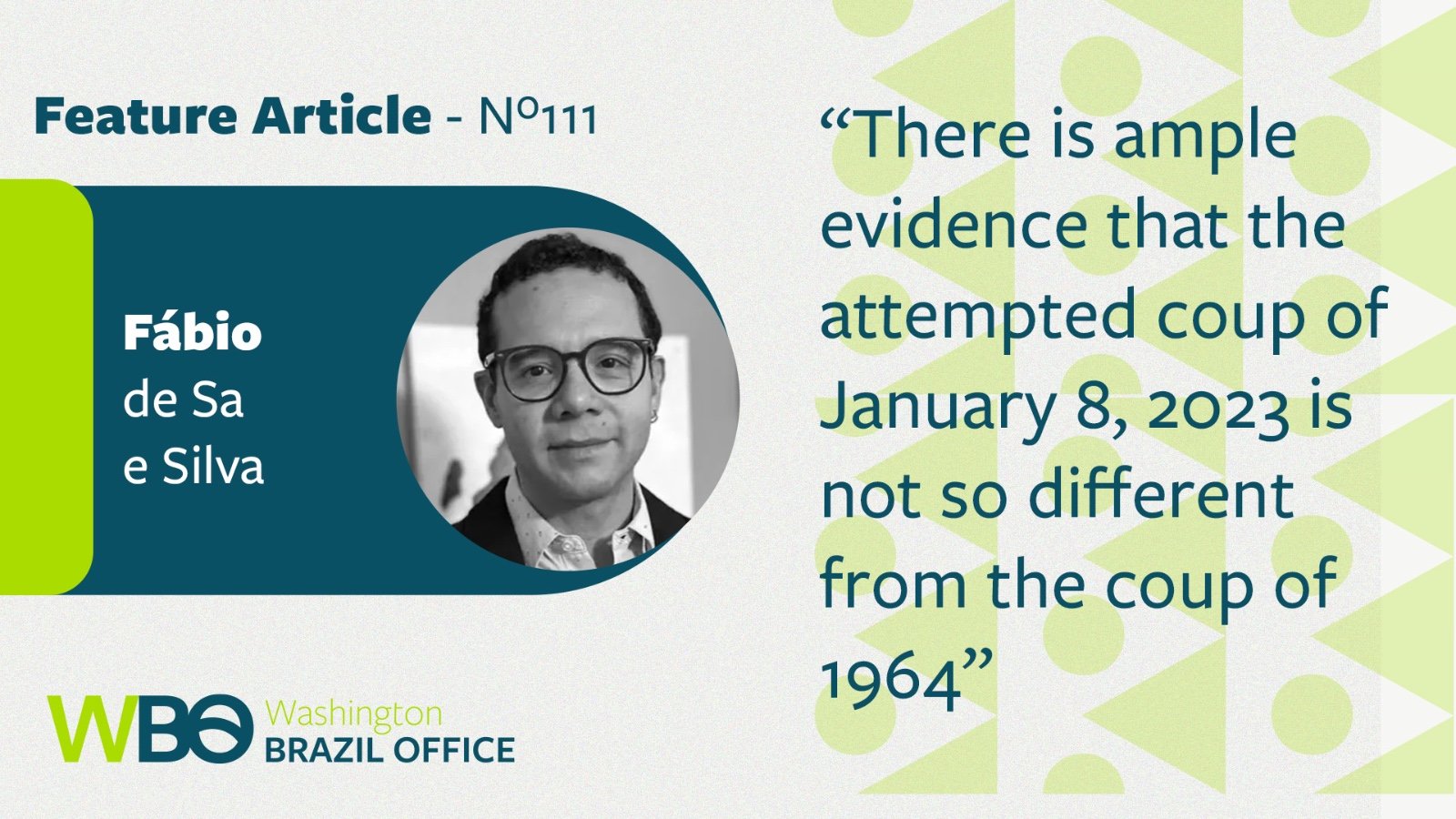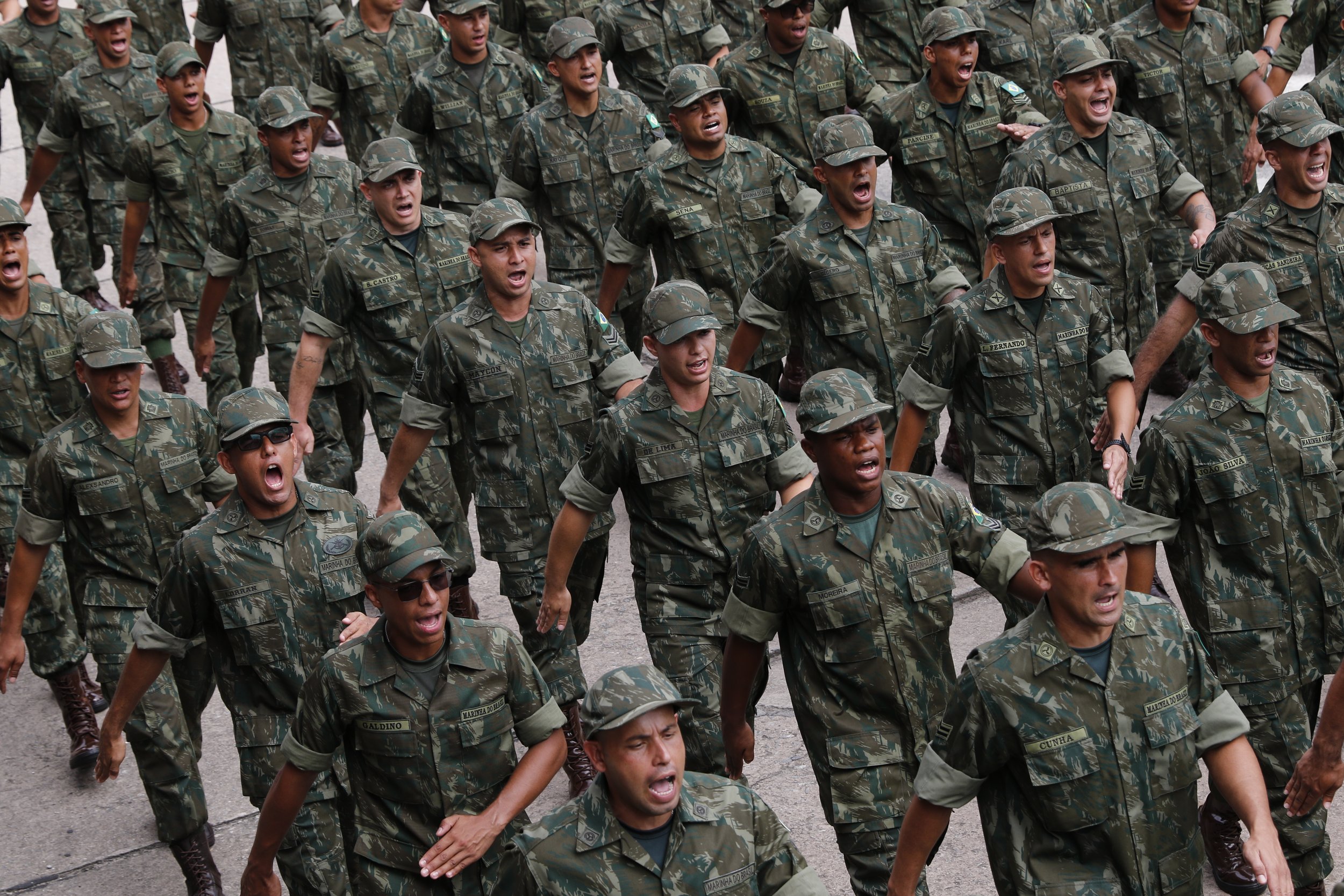By prohibiting the remembrance of the 1964 coup, Lula relies on a false historical disjunction
Fabio de Sa e Silva, Associate Professor of International Studies and Wick Cary Professor of Brazilian Studies at the University of Oklahoma. Vice President of the Brazilian Studies Association (BRASA). This article was written by Ioris especially for issue 111 of the WBO weekly newsletter, dated April 5, 2024. To subscribe to the newsletter, enter your email in the field below.
No one can deny that Lula's life is difficult. Victorious in the 2022 elections, in which a tenuous majority of the electorate entrusted him with a third term, the current president of Brazil inherited a scenario of scorched earth, where institutions are deeply disfigured. The Supreme Court had become a bulwark of the defense of democracy, absorbing typical functions of the investigative police and an almost defunct Attorney General's Office. The National Congress took control of the budget and began to shelter an unprecedented contingent of far righters. The country's fiscal health had been deliberately undermined in order to ensure Bolsonaro's reelection to the presidency. Finally, public policies that were once considered world-class, such as the national immunization plan or Bolsa Família, had been dismantled or disfigured by the Bolsonaro's management.
In such a delicate scenario, it was almost inevitable that Lula’s third presidency would be marked by choices of priorities, coalition formation, and negotiation – an art that Lula has demonstrated mastery of since his first term.
But even for those who were already resigned to the idea of a negotiating presidency, Lula's directive that government agencies should not remember the civil-military coup of 1964, just as the event reaches the symbolic date of 60 years, seemed a bit too much. After all, this means setting aside a premise dear not only to the political left, but to all democratic forces that in 2022 united in support of the current president, namely “hatred and disgust for the dictatorship,” as the late Congressman Ulysses Guimarães properly synthesized when the 1988 Constitution was promulgated from which the country promised to leave behind the “day that lasted for 21 years”.
“In this context, remembering the 1964 coup is far from an inconsequential measure. It would serve to demarcate, once and for all, the understanding that the place of the military is in the barracks”
In the justification he publicly gave for his command, Lula appealed, not surprisingly, to the idea of concertation, or unifying agreements. For the president, the 1964 coup is part of the past and would serve as a distraction at a time when he is trying to get the country back on its feet. More worrying and worthy of being a priority would be to discuss the attempted coup of January 8, 2023, whose responsibilities are in an advanced stage of investigation by a depoliticized Federal Police and in inquiries directed by Supreme Court Justice Alexandre de Moraes.
But even as rhetoric, this possibility makes no sense. After all, there is ample evidence that the attempted coup of January 8, 2023 is not so different from the successful coup (for the coup plotters, that is) of 1964. Common and central to both is the objective of military tutelage over civilian power, this time under the guise of an unfounded interpretation of article 142 of the 1988 Constitution, invoked as authorizing a military intervention in the government to respond to fanciful judicial authoritarianism.
As the investigations by the Federal Police show, this script was intensely discussed with the main military authorities. Some of these authorities would have embarked on the coup adventure; others try to disentangle themselves from it, but cannot explain why they participated in meetings, discussed, and revised drafts of coup decrees, issued statements endorsing extremists’ outrage against the election result, and allowed these extremists to camp at the doors of barracks - a set of actions and omissions to which journalist Kennedy Alencar astutely labeled as “recreational coupism”.
The disjunction between past and present attempted by Lula is therefore historically unsustainable. If there is something that separates the past from the present, it is the political, domestic, and international conditions that made the coup unfeasible despite the interventionist thirst of the military, and not because it was absent.
In this context, remembering the 1964 coup is far from an inconsequential measure. It would serve to demarcate, once and for all, the understanding that the place of the military is in the barracks, reiterating the importance of punishing on-duty and retired officers who insist on hindering democracy and, perhaps, encouraging the National Congress to resume carrying out important agendas for the consolidation of democracy and the rule of law in the country – such as the determination of a period of ineligibility for military personnel to run in elections or even the prohibition of them holding many civilian government positions.
Karl Marx, hated by the Brazilian armed forces, which in the twenty-first century are still haunted by the “ghost of communism,” once wrote that the repetition of the Bonapartes, that is, military leaders in power, took place “first as tragedy, then as farce.” On this April 1, 2024, on the 60th anniversary of the civil-military coup in Brazil, we should be able to say “never again a dictatorship,” so that Brazilians do not have to experience their own farce.


